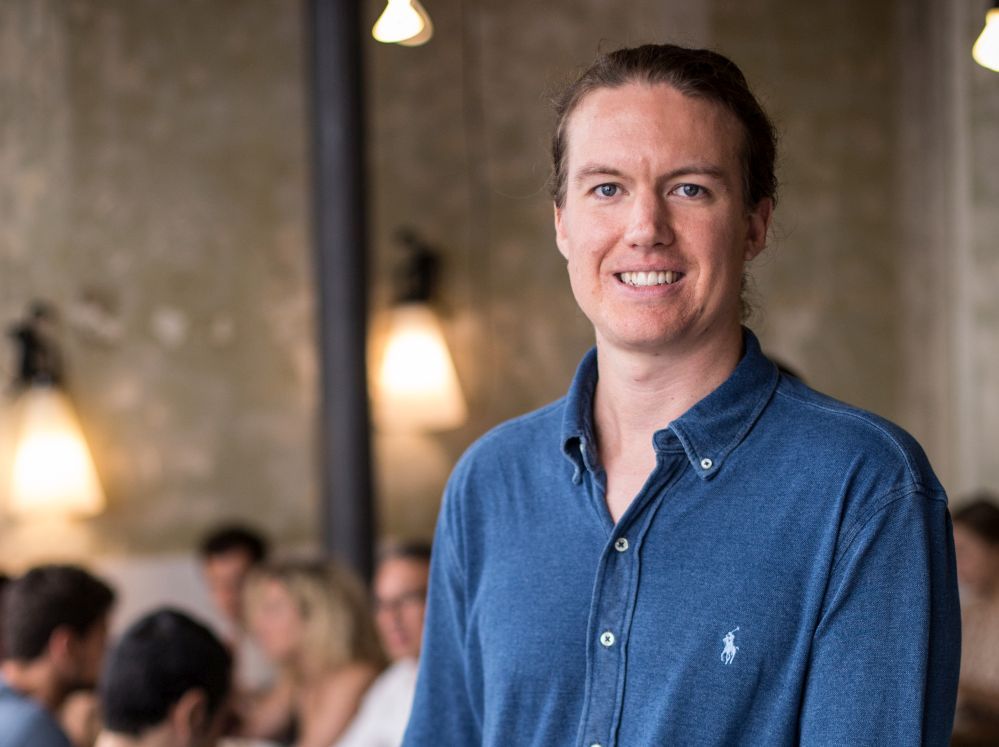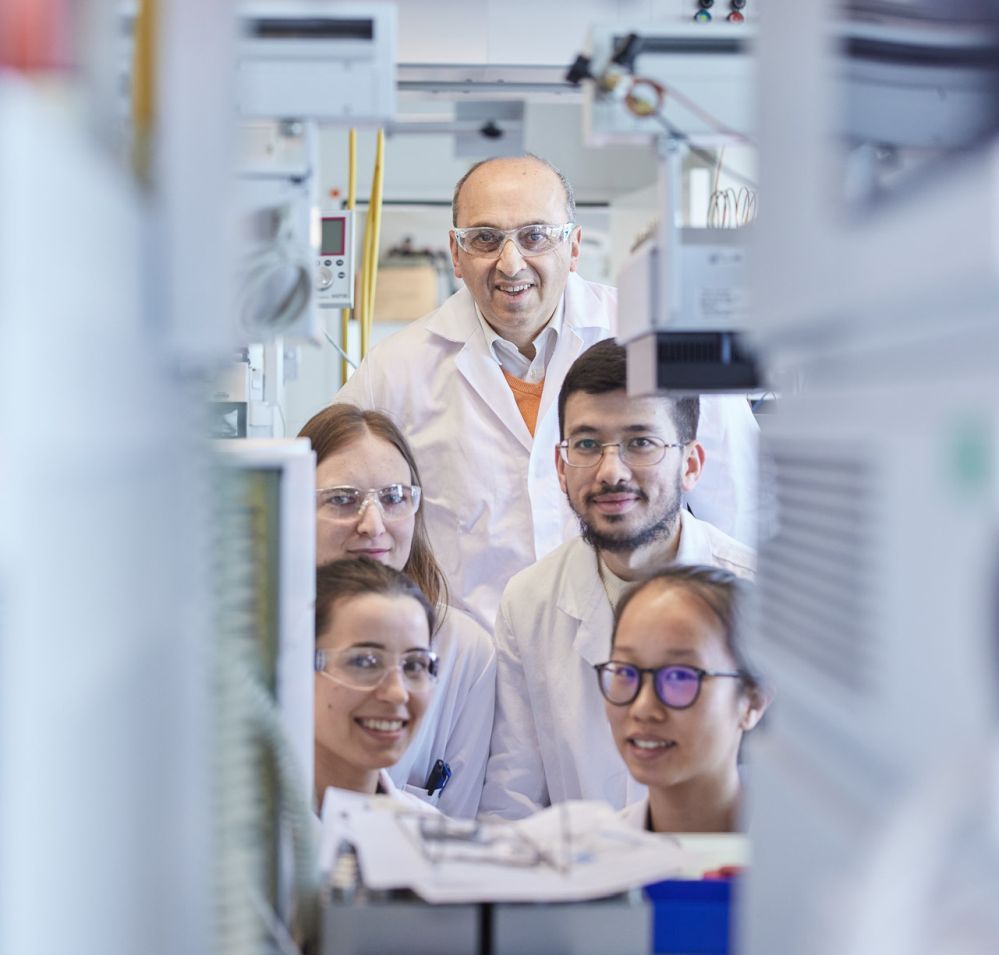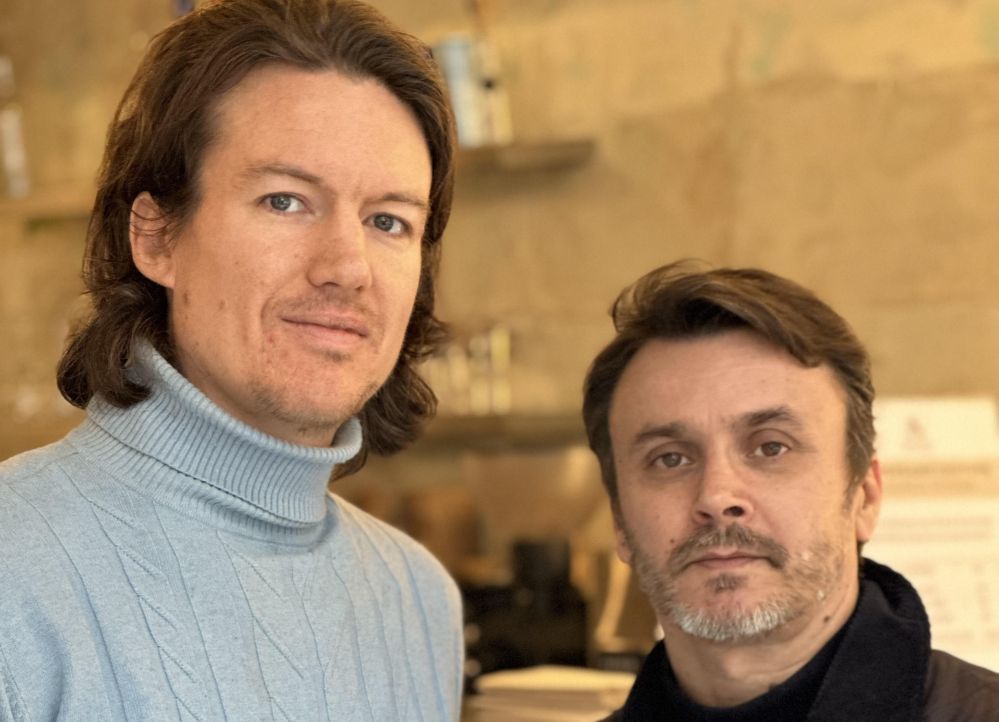Rather than using sunlight, water, and soil to grow fully-grown plants, plant cell culture startups are growing plant cells in conditions optimized for the rapid production of high-value ingredients from cocoa polyphenols to saffron. But does it make economic sense to grow coffee in a bioreactor?
That all depends on your approach, says Paris-based startup STEM, which is developing coffee made from Arabica coffee plant cells, not roasted beans, that it aims to debut in ready-to-drink canned cold brew.
Founded last year by specialist coffee roaster and wholesaler Tom Clark (CMO); biotech IP specialist Henri Kunz (chairman); and analytical chemist Dr. Chahan Yeretzian (CEO/CSO); STEM secured pre-seed funding from a leading Japanese beverage company six days after it was registered in Paris and is now working on refining and scaling up its process.
AgFunder News (AFN) caught up with Clark (TC) to talk about the origins story, the fragility of the coffee supply, and a future where your cup of morning joe could go “from an affordable luxury to a rarity that only a very small group of people will be able to enjoy.”

AFN: Tell us about the origins story at STEM
TC: I’ve known [STEM cofounder] Henri [Kunz] since 2015, but in spring last year he came to my café in Paris [Café Coutume] and we started talking about the threats to the coffee industry and whether there were biotech solutions to futureproof supplies.
Henri remembered he’d met a coffee scientist [STEM cofounder Prof. Chahan Yeretzian, who founded the Coffee Excellence Center at the University of Applied Sciences in Zurich] at a launch party for a German startup called QOA making cocoa-free chocolate and gave him a call. He called back and said this is exactly what the coffee world needs, and he wanted to be a part of it, not as a consultant, but as a partner.
So Chahan became our third cofounder. Within a few months, we had put together a pitch and were incorporated in France in August 2022. We managed to get pre-seed funding from a leading Japanese beverage conglomerate and produced a proof of concept at Chahan’s laboratory in Zurich a couple of months later.
I think everyone brings something different to the table, so myself in specialty coffee and marketing, Henri on the biotech and entrepreneurship side, and Chahan with his chemistry and research background. We also have a very skilled set of advisors and consultants.
AFN: What problem are you actually solving?
TC: We’re looking at a future where coffee will go from an affordable luxury to a rarity that only a very small group of people will be able to enjoy.
In part due to climate change, the amount of land that can sustain coffee is steadily dropping. Arabica—which is the world’s most consumed and enjoyed species of coffee—is extremely fragile. It only grows at certain temperatures, which require more and more altitude as temperatures are rising, and it has very weak genetic diversity.
By 2050, we’re going to have roughly 50% less arable land that will be adapted to growing Arabica, plus you have associated challenges from pests and diseases related to climate. And then there’s deforestation as we go to higher altitudes.
At the same time, demand continues to rise. China has now become a coffee drinking nation and India is becoming a coffee drinking nation. And when two of the world’s biggest populations start drinking coffee, everything changes.
I don’t want to be in a world where we only have plant-based alternatives or surrogates. We want to futureproof coffee for the next generations.
AFN: How do you sell coffee made via plant cell culture to consumers?
TC: I think consumers understand these challenges [described above], but you can’t just say, ‘Drink this coffee because it’s better for the planet.’
I think people will be excited by the novelty and the experimentation. There’s actually a lot of interest in science and experimentation in the specialty coffee world to create new experiences in terms of fermentation, lactic fermentation, fruit-infused fermentation and new approaches to extracting coffee.
We don’t just want to market ourselves as a CSR [corporate social responsibility] company.

AFN: Plant cell culture has been around for decades, but has anyone used it for coffee before?
TC: VTT in Finland was possibly the first to look into this, purely on a research level. Chahan got in touch with one of their scientists at the beginning of our process, and now we’re collaborating.
AFN: So what are you producing, exactly?
TC: We began with two sources [of cells]: coffee leaves and green coffee beans. We’re also looking at a third source, the stem, which would work quite well for branding purposes given the name of the company! But we’re also looking at coffee waste, things like coffee cherries, spent grounds and so forth. Can we add flavor notes to our coffee through extracts we can add to our cell lines?
We grow the cells in liquid suspension and then dry and roast the biomass. In general, plants are much more flexible and have more readily available stem cells than animals: think of grafting one branch of a plant to another plant, or rooting a branch that’s been cut off. Once we have isolated cells with stem potential, we grow them in a liquid suspension, all whilst innovating methods for faster proliferation and ease of scalability. Here STEM is incredibly advanced in shortening the protocol from around 40 days to under 21 days.
Because we’re roasting a powder and not coffee beans, we’ve also had to develop a specific coffee roaster, so for example we have had to create a bit of turbulence to stop the coffee sticking to the drum, which would ruin the roast.
We’re in the process of filing a patent and would be looking to team up with a manufacturing partner to produce the equipment.
The great thing about it is that once roasted, the granular size of the powder is very close to what you want for filter coffee without any grinding, so we don’t have to grind our coffee. We were able to brew it with quite good consistency using AeroPress [a piston-style brewer that forces coffee through a thin paper filter directly into a cup] and V60 [pouring hot water through the coffee grounds] methods.
As we refine the technology, we will be able to control the particle size and even the shape in future iterations.
AFN: How does STEM’s coffee compare to regular coffee from ground roasted coffee beans?
TC: We analyzed our coffee in three forms: the green coffee, the roasted coffee, and the brewed coffee, and it contained the key compounds that make coffee, coffee. But they don’t necessarily exist in the same percentages as farm-grown coffee, so notably the caffeine content is quite low, which could be a good thing for many consumers.
However, the fats were also quite low, which is not such a good thing because fats are important for fixing aroma. We also noticed that the sugars are higher because of the growth media that we use, which is just a standard growth media as we haven’t yet nailed down the specific media which we will tailor to cellular coffee as we iterate.
When we roasted the coffee, there was a Maillard reaction, so the coffee had toasted bread, malty, caramel, and sweet notes, which was a good thing. But it didn’t have the acidity and the complexity we want, but this was just a proof of concept, so it’s very early days.
AFN: How tunable is your process? Can you increase the fat or caffeine level for example?
TC: Improved protocols of cell cultivation media can modulate the level of caffeine. It’s much more difficult to modulate the fat of sugars this way, but we can also augment the product through materials in coffee waste such as lipids, caffeine and aromatic molecules.
This also means that we can say our product is 100% from coffee genetically, and that any added flavors are from coffee waste, which is a nice way of tying into the circular economy.
But in relative terms, the cell cultivated coffee already has a very good match to farm grown coffee which provides a solid base to improve upon. Our filed IP on roasting methodology paired with our deep understanding of analysis and flavor engineering sets us apart from the competition.
AFN: How scalable is plant cell culture to produce what is at the end of the day, a commodity product?
TC: Coffee is a commodity, but it’s also one of the highest margin products in the beverage space. We feed our cells a combination of nutrients and plant growth factors, but plant cell culture growth media costs a fraction of what it costs to produce media for cell cultivated meat.
Our first financial modeling is based on 500-liter bioreactors and even at this scale we believe we can be competitive. Once we achieve the ideal combination of growth conditions, media, and cell programming, scaling is relatively economical and simple.
We also have formats that only require a small amount of coffee, so we’ll be looking to start with ready to drink products.

AFN: How do you envisage STEM coffee fitting into the market?
TC: We’re not looking to compete with ultra-high quality specialty coffee, the sort of coffees we call 80+ or 90+ coffees [read more about coffee grading here]. We really want to come into the equation saying we can produce high-quality premium coffee in a controlled, environmentally friendly and very responsible manner.
We plan to start with a ready-to-drink cold brew coffee in a can. We’re also looking at a nitro version with a test launch in the Asian market, and we’re currently going through the novel food process in Singapore.
Other formats we’re looking at include a filter product and a soluble instant coffee, which many specialty coffee companies are launching now. A filter coffee is roughly 60 grams for one liter and cold brew is about 80 grams for one liter, so we can be quite cost efficient in terms of how coffee is brewed.
AFN: What’s the go to market strategy?
TC: In 2024 our plan is to conduct a test launch in Singapore, which is a small but impactful market with a big coffee culture; they also drink a lot of cold brew.
Then we’ll look to Japan, as we have a natural connection there with our first investor. They are one of the biggest cold brew canned companies in the world, so the idea would be to leverage their production and distribution expertise. This is one of the key reasons we went with them as our first investor.
We are also setting up a subsidiary on the East Coast to expedite our market entry in Northern America.
The EU will follow, but that’s obviously going to be a longer process because of the Novel Food Regulation, although we think it will be slightly less onerous [than it otherwise might be] because we’re not using genetic engineering.
AFN: How have you funded the company?
TC: We managed to get pre-seed funding from a leading Japanese beverage conglomerate just six days after the registration of our company in Paris and we are currently raising a €4.5 million ($4.9 million) seed round.
STEM cofounders Tom Clark (left) and Henri Kunz (right) Image credit: Maria ZakurnaevaFurther reading:




